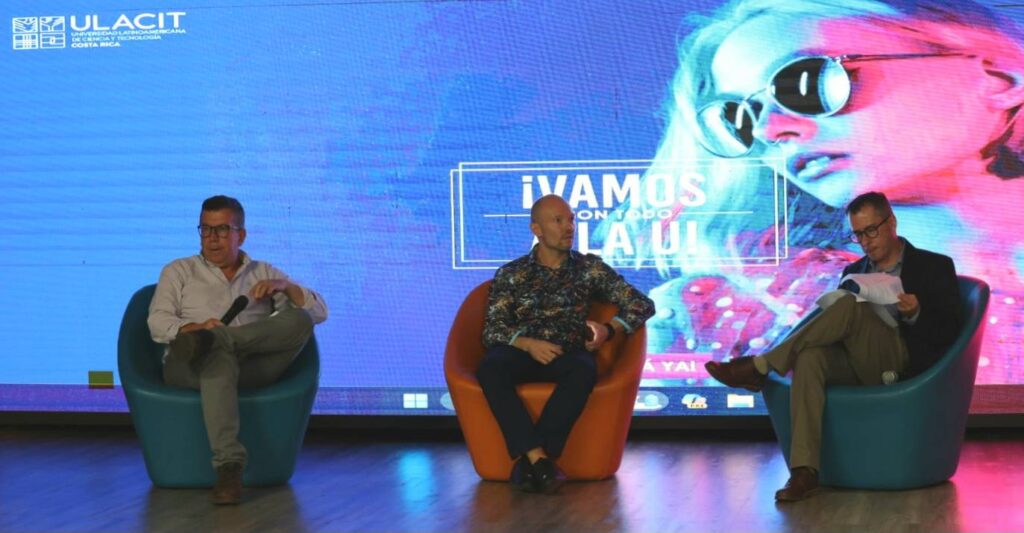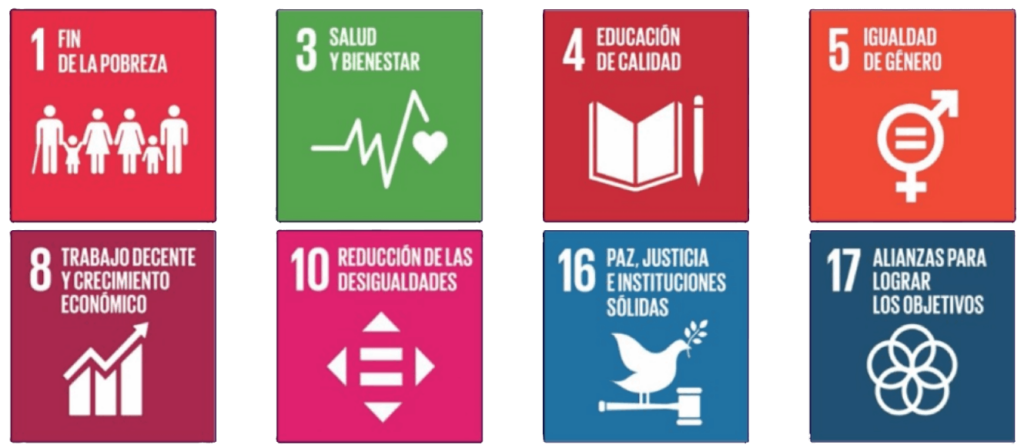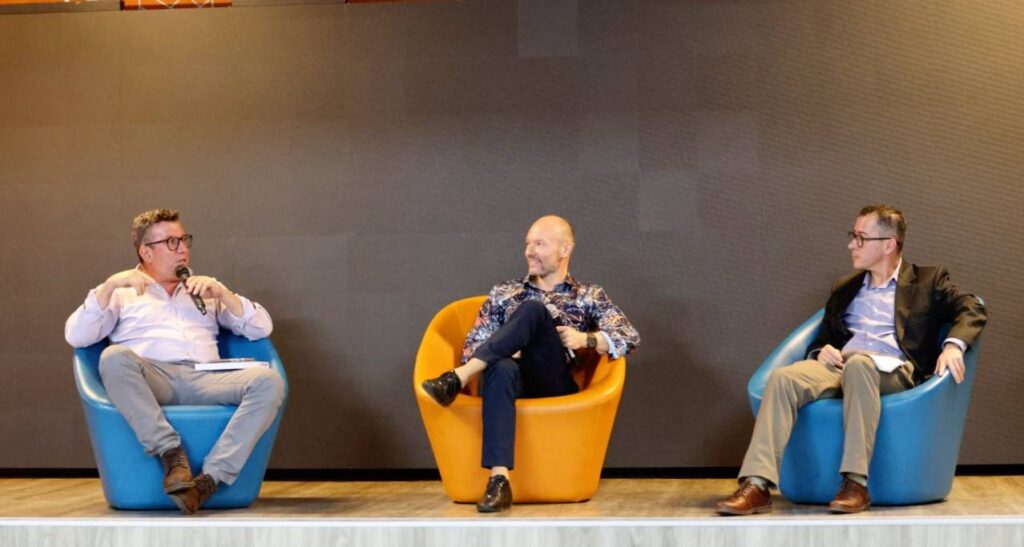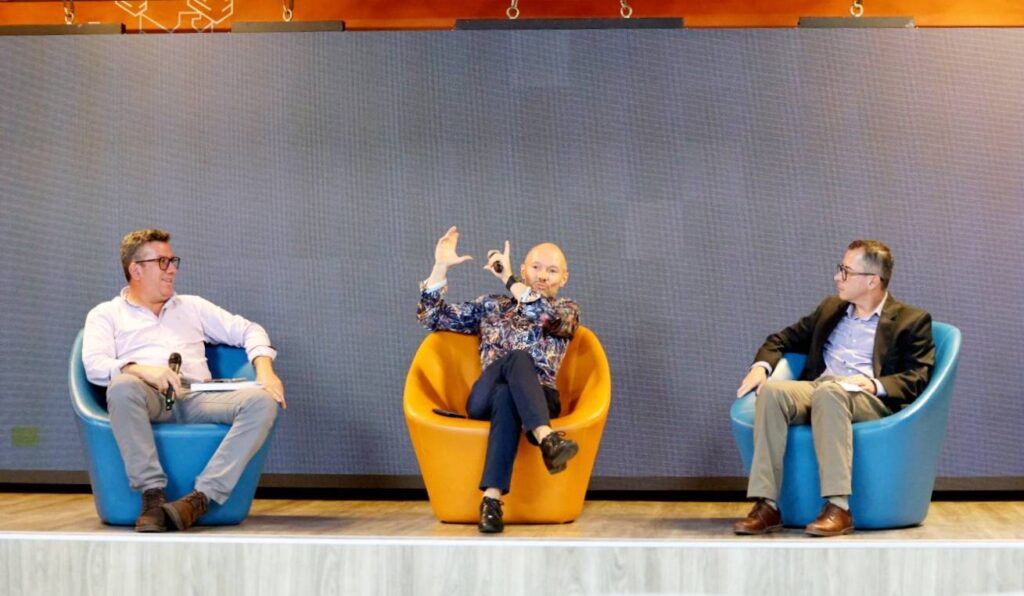
The Latin American University of Science and Technology (ULACIT) remains committed to the comprehensive education of its students and organizes the Green Seals conferences to discuss current topics with national and international experts.
On June 5, 2024, in collaboration with the Blockchain Association Costa Rica (Asoblockchain), ULACIT hosted the conference “Blockchain for the Development of Fair and Equal Work.” The event featured Dr. Leiner Vargas Alfaro and Dr. Nicolás Sulima, both holding doctorates in Economics, renowned researchers, and internationally recognized speakers. The talk was moderated by M.B.A. Raul Trejos Espinoza, a biotechnology engineer from the first generation of the Technological Institute of Costa Rica (ITCR). The central topics included the impact of blockchain technology on decent work, economic growth, health and well-being, and the reduction of inequalities.

Dr. Vargas began his presentation by explaining in depth what blockchain technology is and its benefits. He highlighted how this technology can be used to create more transparent and accountable governance systems, which in turn improves trust in institutions. Dr. Vargas mentioned that blockchains can create an immutable and transparent record of all transactions in a supply chain, from production to final distribution. This ensures that workers receive fair pay, labor standards are met, and consumers have access to accurate information about the products they buy.

Meanwhile, Dr. Sulima delved into blockchain’s ability to store and share information securely and transparently, which can help reduce fraud and discrimination. He emphasized that this technology provides a public and auditable record of all transactions, reducing the risk of fraud and corruption, and improving trust among market participants.
Dr. Sulima also discussed the financial inclusion that blockchain can facilitate, enabling the creation of accessible and low-cost financial services, such as remittances, loans, and insurance, especially in regions with limited traditional banking services. Additionally, he mentioned that this technology helps ensure transparency in the distribution of funds and humanitarian aid, as well as creating employment and business opportunities.

In the health sector, Dr. Vargas explained how blockchain can improve the management of medical records, ensuring they are immutable and accessible only to authorized individuals, thus enhancing patient care. He also pointed out that blockchain allows interoperability between health systems, ensuring consistent and coordinated care for patients regardless of their location. Furthermore, Dr. Sulima added that blockchain can be used to track the pharmaceutical supply chain, ensuring that medications are genuine and not counterfeit, thereby improving patient safety.
Following the conference, students had the opportunity to ask questions and engage in a dynamic discussion. Attendees were encouraged to delve deeper into this technology and explore how it is transforming everyday life.
Through initiatives like these, ULACIT continues its mission to provide cutting-edge education and facilitate the analysis and understanding of emerging technologies and their impact on society.